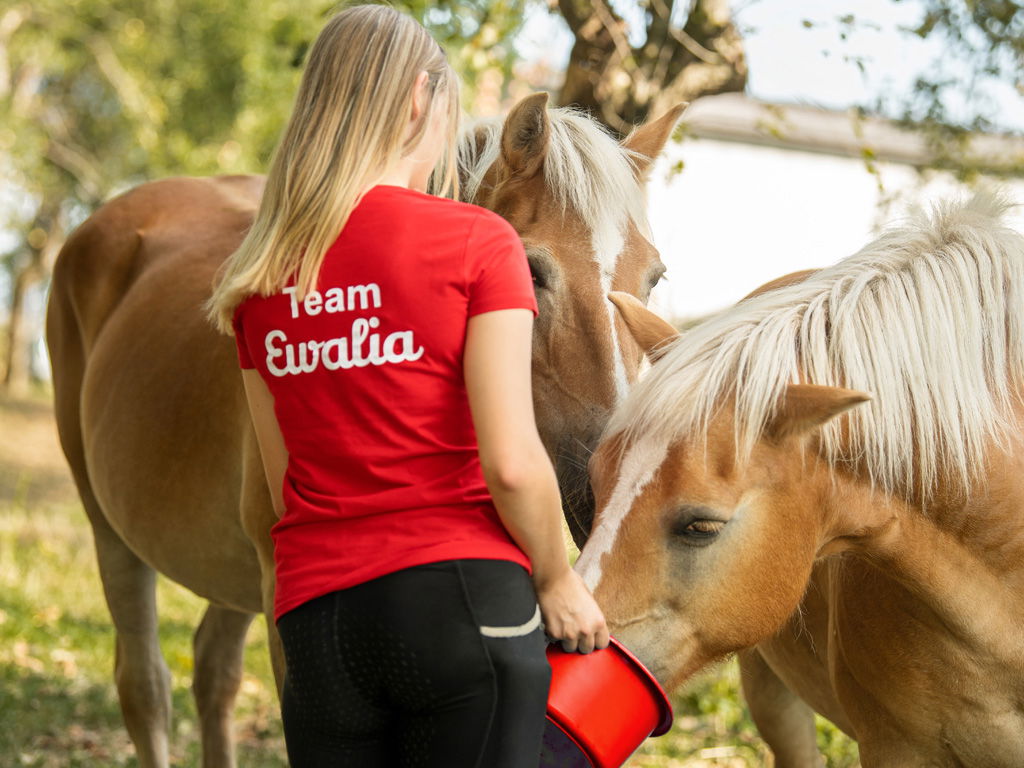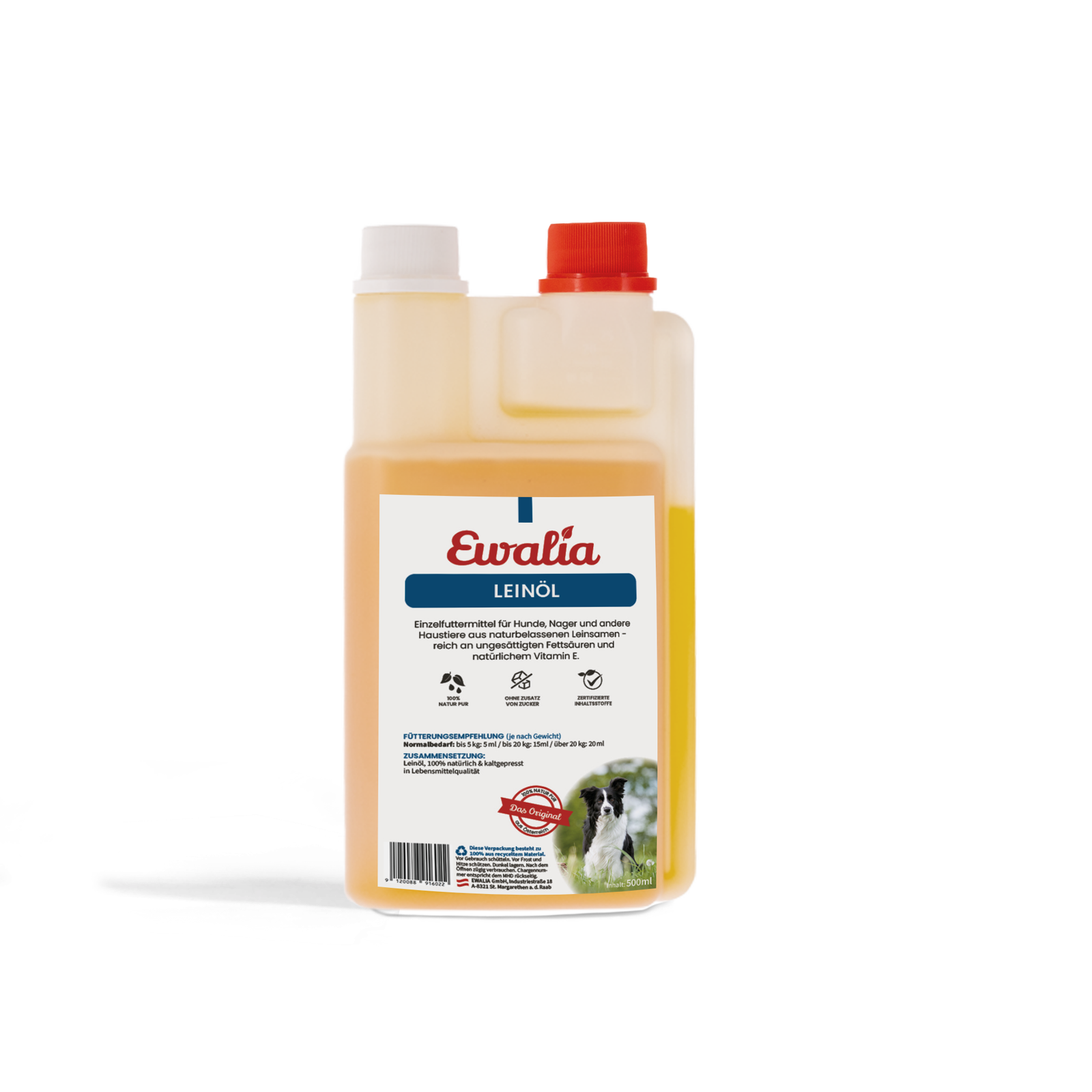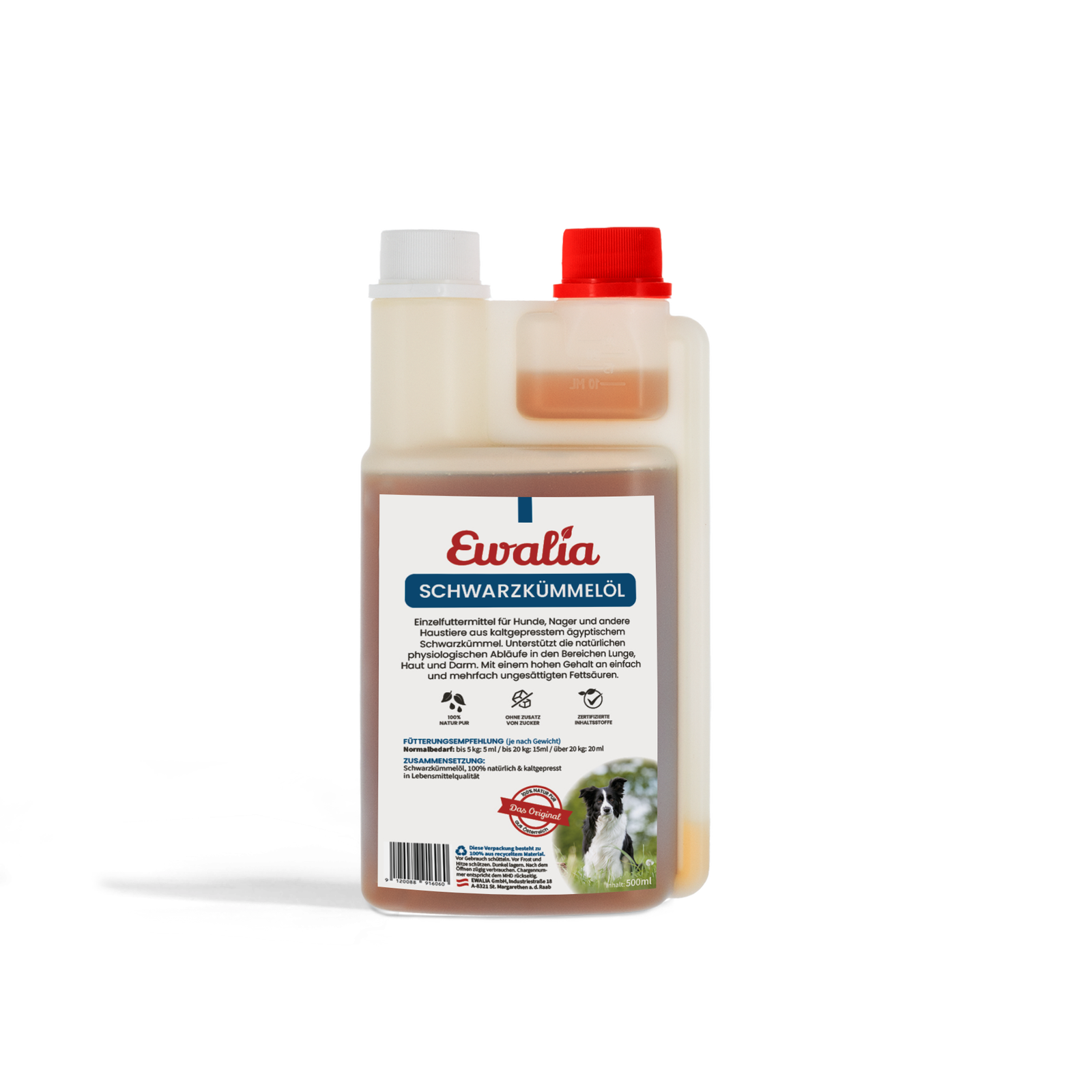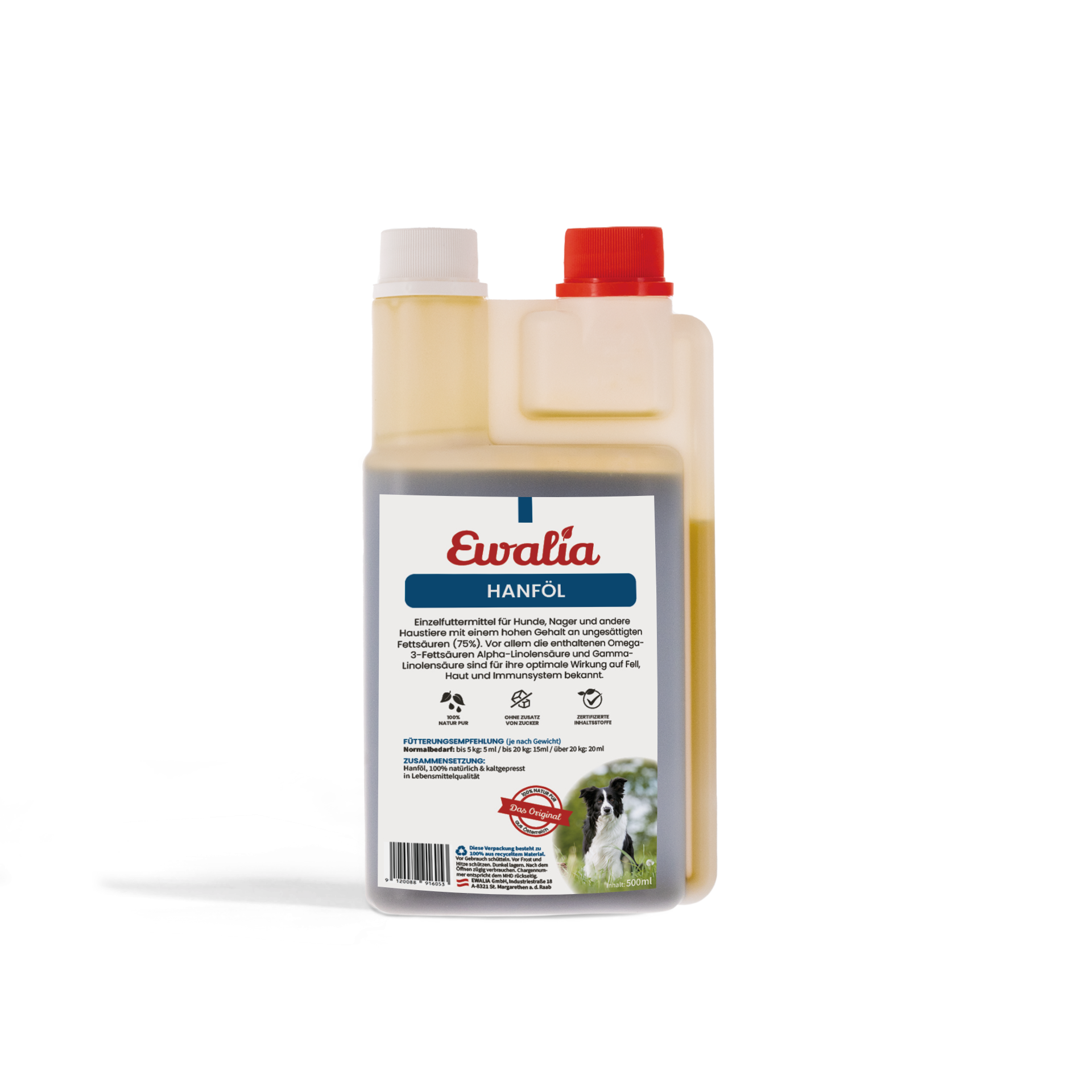Good oils for healthy dogs
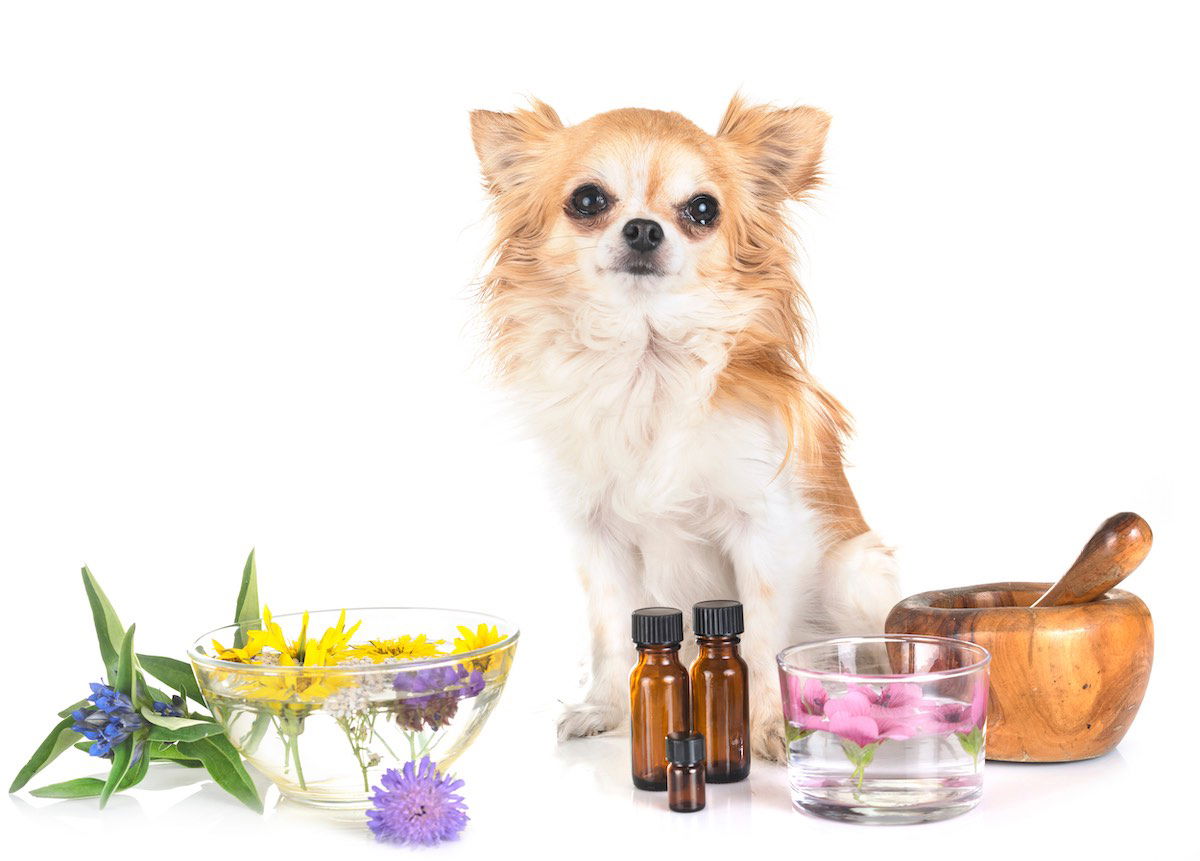
Oils play an important role in healthy nutrition for dogs too. Many people wonder about which oil is the right one for their dog. Cold-pressed oils, especially, do not only promote human health but are also particularly beneficial to dogs. Finally, essential oils are of essential importance because of the polyunsaturated fatty acids that the organism needs, but cannot produce by itself.
Oils play an important part in canine nutrition
Active, agile, joyful, with a shiny coat and a bright look - a condition that makes any dog owner smile. The health of our best friend is as important to us as our known. The intensive discussions between dog owners with different feeding philosophies clearly shows the level of interest in healthy canine nutrition.
Biologically, the dog is a predator (carnivore) in the superfamily Canoideae (dog-like animals) and by its very nature a meat-eater.
It is important to supplement he fats contained in commercial dog food with high-quality oils.
What are fatty acids?
Fats are roughly divided into two types: animal fast and plant fats.
There is a difference between saturated and unsaturated fatty acids, based on the number of double bonds in the fatty acid chain.
The inclusion of polyunsaturated fatty acids in the diet is particularly relevant to dogs as they are not produced by the body itself. - they are essential! The most important essential fatty acids for dogs are:
- alpha-linolenic acid
- gamma-linolenic acid
- linoleic acid
- arachidonic acid
They can be divided into omega-3 and omega-6 fatty acids.
A balanced ratio of omega-3 and omega-6 fatty acids is essential due to their antagonistic mode of action. They are antagonists because the nutritional properties of omega-3 fatty acids need those of omega-6 fatty acids and vice versa.
Where do we find polyunsaturated fatty acids?
Depending on how your dog is fed, it is important to ensure adequate intake of polyunsaturated fatty acids. In commercially produced dry and wet food, care is usually taken during development to ensure that optimal fat content is added. Nevertheless, it makes sense to supplement oils in adequate quantities, especially in times of increased stress, in very active animals or during moulting.
For dogs getting raw food: Essential fatty acids are found mainly in high-quality vegetable oils, as well as in the fat content of meat or fish. Since the dog obtains many omega-6 fatty acids from meat in raw feeding, attention must be paid to the omega-3 contents of oils used as a supplement. Fish oils such as salmon oil, cod oil or cod liver oil and certain vegetable oils, for example hemp, linseed, rapeseed or walnut oil, are very rich in omega-3 fatty acids.
Why should the oils be cold-pressed?
When buying oil, you should pay particular attention to the quality. Dogs should be fed only cold-pressed oils, as the production is gentler and as a result more of both vitamins and essential fatty acids are preserved.
If not designated exactly as "cold-pressed", cold-pressed oils sometimes hide behind descriptions like "original" or "virgin".
What happens when your dog doesn't take in enough essential fatty acids?
Symptoms of a deficiency in essential fatty acids in dogs include skin and coat problems (such as dandruff and eczema, difficulty in moulting), but it can also manifest in serious metabolic problems.
A balanced diet is indispensable for preventing deficiency symptoms. In terms of oils, this means variety above all, and careful balancing of omega-6 and omega-3 fatty acids.
In raw feeding, supplementing oil is also important for fat-soluble vitamins to prevent a vitamin deficiency and to provide the dog with an optimal supply of the nutrients contained in fruits and vegetables.
Remember: Since many vitamins contained in fruits and vegetables are fat-soluble, it is essential to add oils to a dog's feed, since otherwise it excretes those vitamins undigested and does not benefit from them.
How much oil should I feed my dog?
As a rough calculation, you could start from a daily requirement of 0.3 grams of oil per kilogram of body weight of the dog. That means:
If the dog weighs 20kg, it should take in around 6g of oil with its food. (20 x 0.3 = 6)
(1 teaspoon = +- 3g).
The oil supply can be increased accordingly for a very active dog with correspondingly higher consumption. In addition, it is advisable to increase the amount during moulting to provide the skin and coat with the necessary support and to keep the coat shiny and supple.
Which oils can I feed my dog?
Basically, cold-pressed oils with a high omega-3 fatty acid content are beneficial to health. Refined oils are unhealthy for dogs and should therefore not be fed. In the list below you will find a selection of oils that are particularly suitable for feeding to dogs.
Cod-liver oil: Fish oil obtained after removing the liver from the fish, rich in omega-3 fatty acids.
Hemp oil: from the seeds of the cannabis plant, high content of polyunsaturated fatty acids. The ratio between omega-3 and omega-6 fatty acids is 1: 3, which makes it ideal for dogs. (Food-grade hemp oil does not contain THC or CBD).
Salmon oil: Fish oil rich in omega-3 fatty acids
Linseed oil: extracted from flax seed, especially rich in omega-3 fatty acids. Has a positive effect on inflammation in the gastrointestinal tract, allergies and various skin conditions such as eczema, itching or dandruff.
Rapeseed oil: pressed from rape seed, rich in valuable omega-3 fatty acids.
Nigella oil: pressed from the seeds of black cumin, has outstanding properties and can be used for many ailments.
Compiled by: Hanna Nowak on 15/5/2019
Source:
- Natural Dog Food, Susanne Reinerth 2005












